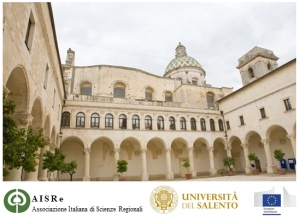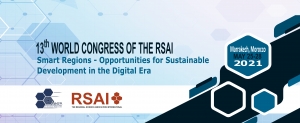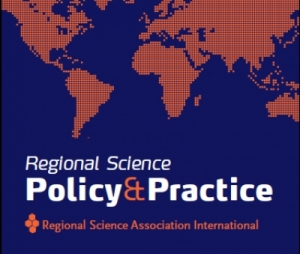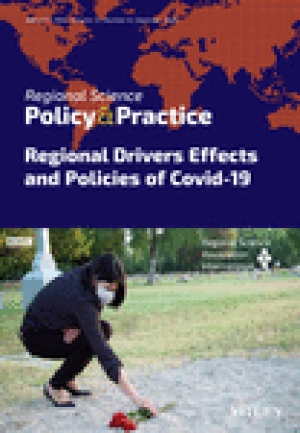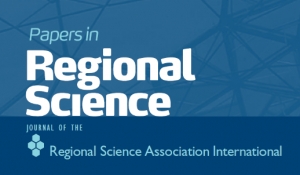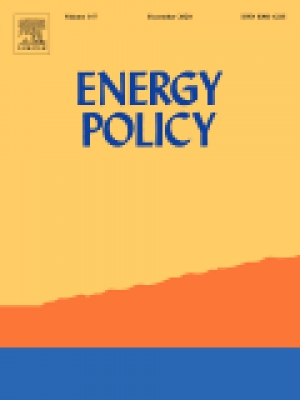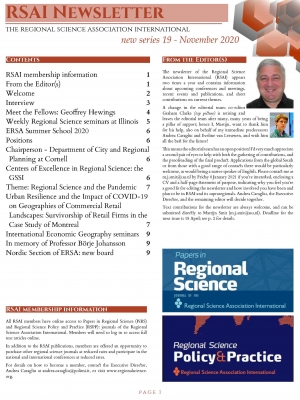Open to new ideas. Since 1365. As a research university with high international visibility and a wide range of degree programmes, the University of Vienna is committed to basic research open to application and research-led teaching, as well as to career development of young researchers and to the dialogue with economy and society. That way, the University of Vienna contributes to the education of future generations and to the society’s ability to innovate.
The appointment of particularly qualified researchers to university professors is an important strategy of the University of Vienna. Become part of this vibrant and future-oriented organisation.
At the Faculty of Earth Sciences, Geography and Astronomy of the University of Vienna the position of a
University Professor of Spatial Research and Spatial Planning
(full time, permanent position) is to be filled.
We are looking for individuals who are outstanding internationally recognized scholars developing cutting-edge research that advances the field of spatial planning and spatial governance. A strong focus on sustainable regional development is welcome. Candidates are expected to have excellent publication, external funding and teaching records, and to be prepared to strengthen cooperation within and across faculties.) Teaching at all levels will be done mainly in Geography, with the option to contribute to Environmental Sciences and other neighbouring fields.
Successful candidates should have the following qualifications:
· Doctoral degree/PhD and post-doctoral experience at a university or other research institution
· Habilitation (venia docendi) in a subject field relevant to this position or an internationally accepted equivalent qualification is
desirable
· Outstanding achievements in research, excellent publication record, international reputation
· Experience in designing, procuring and managing large research projects, as well as the willingness and ability to lead research
groups
· Enthusiasm for excellent teaching, teaching experience at universities as well as the ability and willingness to teach students in
all phases of their studies (bachelor's, master's, or doctoral level), to supervise academic theses and to promoting young
academic colleagues
The University of Vienna expects the successful candidate to acquire, within three years, proficiency in German sufficient for teaching in bachelor’s programmes and for participation in university committees. In addition, the University of Vienna expects the successful candidate to be prepared to take over responsibility on the organisational level of the Faculty and the University, if necessary.
We offer:
· a negotiable and attractive salary (classification according to the Collective Bargaining Agreement for University Staff, allocation
to job group A1; section 98 of the Universities Act 2002); the salary will be individually negotiated under consideration of the
previous career development and the current income situation
· in addition to the statutory social insurance, the University of Vienna offers a pension fund to its employees
· a “start-up package”, in particular for the initiation of research projects
· a dynamic research location with well-established research funding provisions
· attractive working conditions in a city with a high quality of life
· comprehensive advice and support in relation to finding an accommodation, change of schools and dual career
· a wide range of support services offered by central service institutions
The University of Vienna pursues a non-discriminatory employment policy and values equal opportunities, as well as diversity (http://diversity.univie.ac.at). The University puts special emphasis on increasing the number of women in senior and in academic positions. Given equal qualifications, preference will be given to female applicants.
Application documents:
· Application letter, including a brief description of:
· current research interests and research plans for the immediate future
· current and planned foci in academic teaching and the supervision of young researchers
· Academic curriculum vitae,
including information about “esteem factors” (e.g. experience as a publisher, functions in research societies or programme
committees)
· List of publications, including:
· specification of five key publications which the applicant considers particularly relevant to the advertised professorship
· provision of an Internet link for download or electronic submission of PDF versions of these five publications
· information about citations and impact factors, depending on the common practice in the relevant research area
· List of talks given,
including information about invited keynote lectures at international conferences
· Third-party funds
list of acquired third-party funds (subject, duration, origin, volume) as well as, if applicable, of inventions/patents
· Overview of previous academic teaching and supervised theses, especially doctoral theses
· Teaching evaluations (if available)
· Copies of documents and certificates
Applications in English should be submitted by e-mail to the Dean of the Faculty of Earth Sciences, Geography and Astonomy of the University of Vienna, Univ.-Prof. Dr. Petra Heinz, Althanstr. 14 / UZAII, A-1090 Vienna (This email address is being protected from spambots. You need JavaScript enabled to view it.).
Reference no.: FGGA/2020/01
The application deadline is 17 February 2021.

